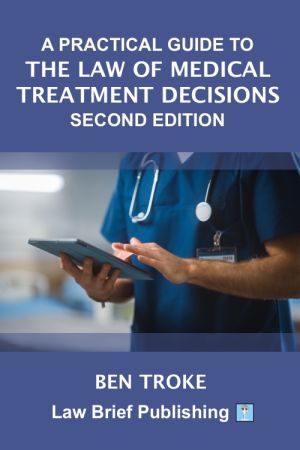
Decisions about medical treatment can be about life and death, such as withdrawal of treatment or (not) providing CPR. Or about quality of life, liberty and independence, which can be just as important. But the legal (and ethical) framework around these decisions is often misunderstood, leading to distress and disputes at the very worst of times. We have seen this in a few very high-profile cases, but there will have been untold others in private.
Should a patient always get what they want, or does “doctor know best”? When a patient cannot make a decision for themselves, who gets to decide, and how should these decisions be made? What is the role of so-called “next of kin” (and did you know that there’s actually no such thing)? Can parents insist on treatment for a baby when doctors think it futile? How are disputes in this context resolved and, better yet, how are they avoided? And how can we act now to control what happens to us in future, when we may not be able to decide for ourselves?
For our most life-changing decisions, this is a practical guide to the law and how it really works, written to be accessible not only for lawyers, but also for clinicians, patients and anyone concerned about them.
In this second edition, Ben brings the text up to date with significant recent cases on when disputes need to go to court and the impact of delay; fluctuating capacity and anticipatory declarations; insight, executive function and the role of belief in capacity assessments; the use of covert recording of clinicians and the proper role of family in best interests decisions; gender dysphoria cases; decisions for 16-17 year olds; the role of ethics committees and a Supreme Court decision on naming / anonymising clinicians in litigation. The new edition also includes new sections dealing with disclosure of medical records, the duty of candour and making good apologies, and on the definition of death.
All author’s proceeds are donated to the Alzheimer’s Society – www.alzheimers.org.uk.